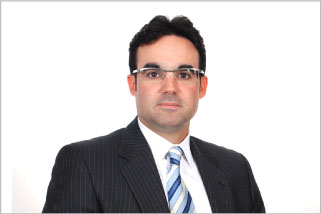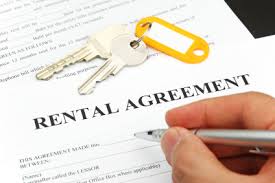Last updated on November 1st, 2017 at 11:13 am
By Alain Sabbah, Partner, Cirrus Consulting Group 1.866.739.9075 asabbah@cirrusconsultinggroup.com Alain Sabbah is a principal at Cirrus Consulting Group, a firm devoted to providing superior dental office lease negotiation and review services to dentists. Alain is a dynamic, hands-on executive with extensive experience in commercial real estate consulting, focusing on tenant representation. Over the years, Alain has taught thousands of dentists on how to best leverage their office leases to maximize the value of their practices.
Alain Sabbah is a principal at Cirrus Consulting Group, a firm devoted to providing superior dental office lease negotiation and review services to dentists. Alain is a dynamic, hands-on executive with extensive experience in commercial real estate consulting, focusing on tenant representation. Over the years, Alain has taught thousands of dentists on how to best leverage their office leases to maximize the value of their practices.
This week’s post is a guest post from Mr. Alain Sabbah of Cirrus Consulting Group.
Mr. Sabbah recently delivered an eye-opening presentation to MGE’s executives and delivery staff on various aspects of dental office leases and how these can impact a dentist’s career, profitability and retirement.
We felt this information was so valuable that we asked for a series of articles for MGE clients on this subject.
We hope you enjoy!
Does your dental office lease expire in the next 24 months? If so, it’s time to start planning your renewal negotiation with your landlord!
Achieving a good lease with fair and affordable financial terms requires extensive research, preparation, and a strong negotiation strategy.
STEP 1: Begin Preparations Early & Identify Goals
Time equals increased leverage, and leverage translates into money in your pocket. Your landlord generally knows very little about the business of dentistry, but what they do know is that the closer they get you to the end of your term, the less time and leverage you have to negotiate a good deal because you are less likely to relocate for one. The fact is, the more time you have until your renewal deadline, the better the deal you are going to get. If you’re within this two-year window, it’s time to start preparing for your renewal negotiation.
Things change (sometimes significantly) in our lives every 5-10 years. Your practice, professional situation and needs today will be different from 5-10 years ago. You’ll need various parts of the lease to work hard for you over the next 10 years versus the last 10 years.
You’re probably not in the same place you were when you initially signed your dental office lease. How have your needs and practice goals changed since initially signing your lease?
• Are you now within 10 years of retirement and your dental practice sale?
• How is your health today versus how you felt 10 years ago?
• Do you have practice expansion plans in the future due to practice growth?
• Do you plan to bring in an associate to work with you?
• Has your debt level gone down and net worth increased?
• Is your practice now incorporated?
• Do you want to expand your service offering and offer alternative forms of dentistry to keep up with demand and advancements in the industry?
STEP 2: Analyze the Terms in Your Current Dental Lease for Risks
Language in the lease is often difficult to understand and written in a way that only favors the landlord, engineered by landlords and their attorneys. Once you’ve defined your goals and mapped out your long term plans, it’s time to review your current dental office lease to identify any terms that affect your flexibility or present risks. Many dentists make the critical mistake of signing their lease without first reviewing it for hidden terms and clauses.

Key Building Blocks to Look for in Your Lease:
• Tenancy: Who is the tenant listed in your office lease agreement? Is it you personally or your incorporated entity?
• Options to Renew: Does the lease provide you numerous “options to renew”, and if so, are these options tied to your performance? Are they transferable to a future buyer if you sell your dental practice?• Economics: Are your rental rates fair and affordable based on comparable space in the marketplace today?
• Relocation Clause: Is there a relocation clause that allows your landlord to relocate you if they find another tenant who will pay more for the space? In that instance, who pays for your moving expenses—you or them?
• Exclusivity Clause: Does your office lease have an exclusivity clause that prevents your landlord from moving a competing dentist right next door?
• Death and Disability: Is there a death and disability clause in place that allows you to terminate your lease if you’re unable to work, or will your family be forced to pay your debts and monthly rent?
• Assignment Clause: Does the lease give you the flexibility to bring in associate dentists and grow your business? Do you have the right to sell your practice? Can your landlord collect proceeds of your practice sale, or terminate your lease upon the mere request to retire?
Guidance from a professional, industry trained dental office lease negotiator is suggested at this critical stage to ensure that all potential risks in your lease are exposed, and an elimination or amendment plan can be developed.
STEP 3: Prepare with Market Research and Develop a Negotiation Strategy
Understanding nuances in the market around your practice is a surefire way to prepare for your dental office lease negotiation. Being aware of neighborhood competition, rental rates and local vacancy rates will put you at a huge advantage, allowing you to set proper and realistic negotiation goals, and give you the confidence to reach a fair deal for the long term.
Remember, your lease is a huge, long-term financial commitment to your landlord. Even a 3% over-commitment can cost you tens of thousands of dollars in unnecessary costs.
Just like you do every day with your patients through proper treatment planning to achieve a predictable desired end goal, you want to map out the desired end goal for the lease negotiation as well as the strategies and tactics for achieving these goals. This is guaranteed to keep you focused on what really matters, enabling you to achieve the very best outcome.
STEP 4: The Lease Negotiation: Tackling Economics
Be cautious of looking at your landlord as a friend (at least during the lease negotiation process). If you do, you will lose this game.
Address the financial aspects of the lease with your landlord first by discussing your rental expectations. Ensure all the major “wins” of the negotiation are documented on paper, and aim to keep the discussion as formal and as brief as possible. Don’t fall into the trap of focusing all of your time and energy on rental rates. Securing terms in your lease that offer you protection is far more significant than saving a buck.
Negotiate Fair Terms
Once you’ve addressed the rental rates in your lease, you may begin negotiating the risks and detrimental clauses highlighted previously out of your lease.
At this stage, it’s important to remember your priorities, future plans, and long and short term practice goals. Stay focused, have patience, and ensure you commit consistent time, energy and attention to this important stage of the process.
 STEP 5: Final Lease Review & Execution
STEP 5: Final Lease Review & Execution
Prepare the final lease document and give it a thorough review before signing it. Get the final sign-off from the landlord, make copies, and save them somewhere safe.
For more information about Cirrus Consulting Group and their dental office lease negotiation and review services, visit them online at cirrusconsultinggroup.com or dial 1.800.459.3413.

